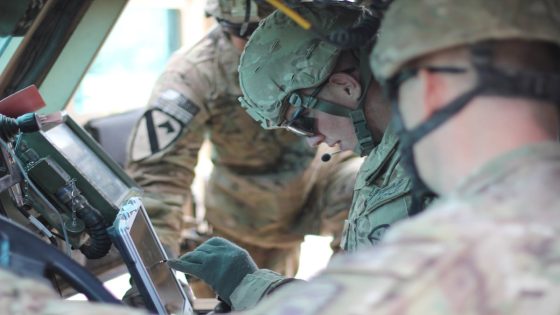The Army is reevaluating its workforce requirements and contract strategies for a major software modernization effort to make it easier for commercial vendors to bid for Defense Department projects.
The service in February released its latest software policy, laying out its plan for managing and developing software as part of a broader digital modernization push. Months later, in May, it unveiled plans to award more than $1 billion in software development contracts over the next decade, posting a special notice and a draft solicitation.
Following the announcement, some commercial firms expressed concern that the Armyâs contracting strategy for the effort may not work for non-traditional or smaller companies backed by venture capital firms that favor fixed-price deals.
Speaking on a panel this summer at the Aspen Security Forum in Colorado, Tara Murphy Dougherty, CEO of defense software company Govini, said the Armyâs approach represents a disconnect between innovation incubators like the Defense Innovation Unit and the Pentagonâs more traditional acquisition offices.
âNo venture capital-backed company that DIU and every other part of DOD has worked so hard to get into the system, none of our companies can bid on that,â Dougherty said in July. âUntil we get the parts of the department who actually put the billion dollar, 10-year contracts into place to understand what it means to work with companies like ours, this isnât going to work.â
An Army official said Tuesday at AFCEAâs TechNet conference in Augusta, Georgia, that in response to feedback from non-traditional firms, the service is working to clarify and in some cases rethink the way it buys software through this new contract vehicle.
Jennifer Swanson, deputy assistant secretary of the Army for data, engineering and software, said that while the service isnât likely to awarded fixed-price contracts for software development projects, itâs looking for other flexible contracting mechanisms that could allow it to work with more commercial firms.
âWe want to make sure that non-traditionals, smalls [and] others without certified cost accounting systems have the opportunity to compete,â she said during a panel.
In fact, Swanson added, the Armyâs contracting command is considering allowing industry to recommend a contract type that best suits their bid rather than defining that up front in its solicitation.
âIf your solution is the one thatâs chosen, then thatâs the contract type that we use,â she said. âWeâre really trying to break a lot of previous rules that we followed in terms of how weâre approaching this and opening up the aperture so that we can cover all bases.â
Another concern non-traditional firms have shared with the Army about the draft software modernization solicitation involves its workforce requirements. The draft solicitation included labor categories that require certain education levels that arenât applicable to many commercial companies.
Swanson said the inclusion of those requirements was inadvertent and doesnât reflect the Armyâs needs for the program. The service is correcting that portion of the draft and plans to release an update this week, she added.
âThatâs a government requirement that weâre removing. And there are a lot of examples that way,â she said.
Courtney Albon is C4ISRNETâs space and emerging technology reporter. She has covered the U.S. military since 2012, with a focus on the Air Force and Space Force. She has reported on some of the Defense Departmentâs most significant acquisition, budget and policy challenges.
Source Agencies




